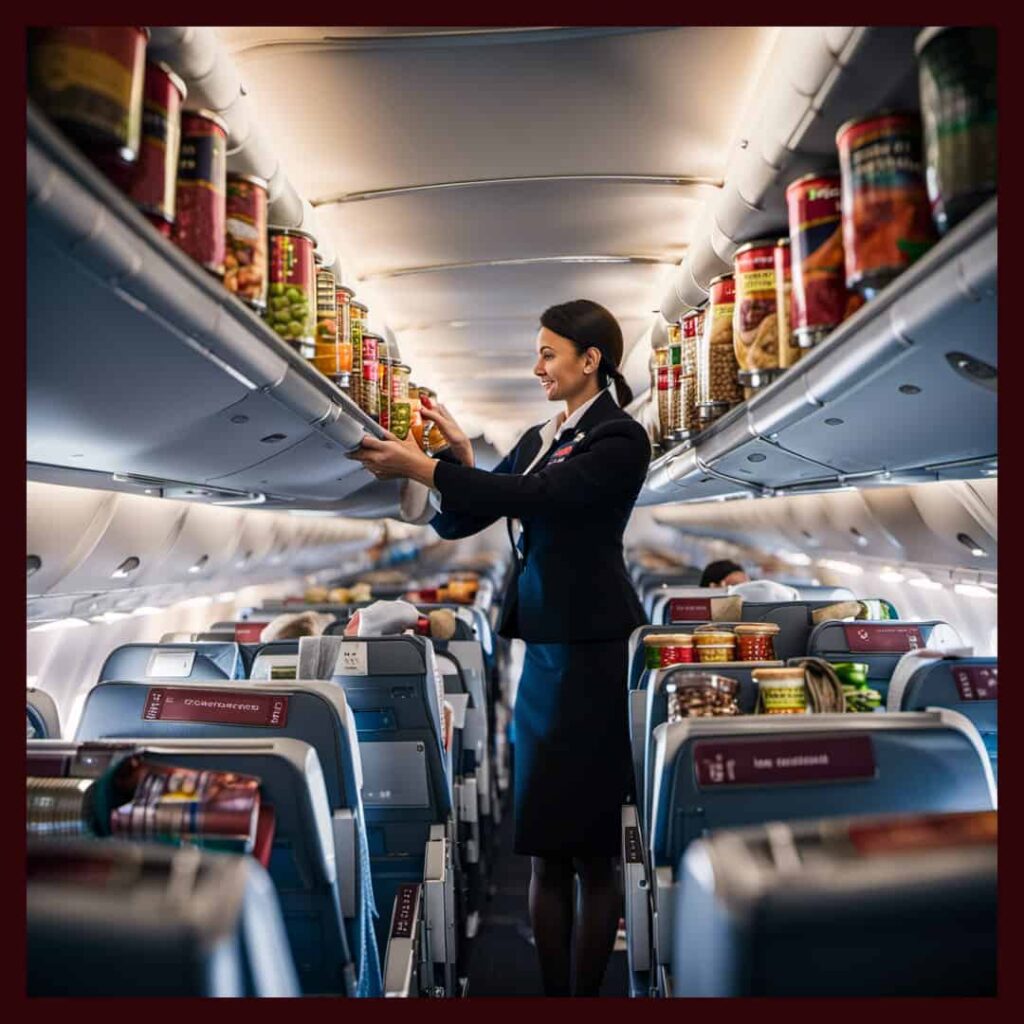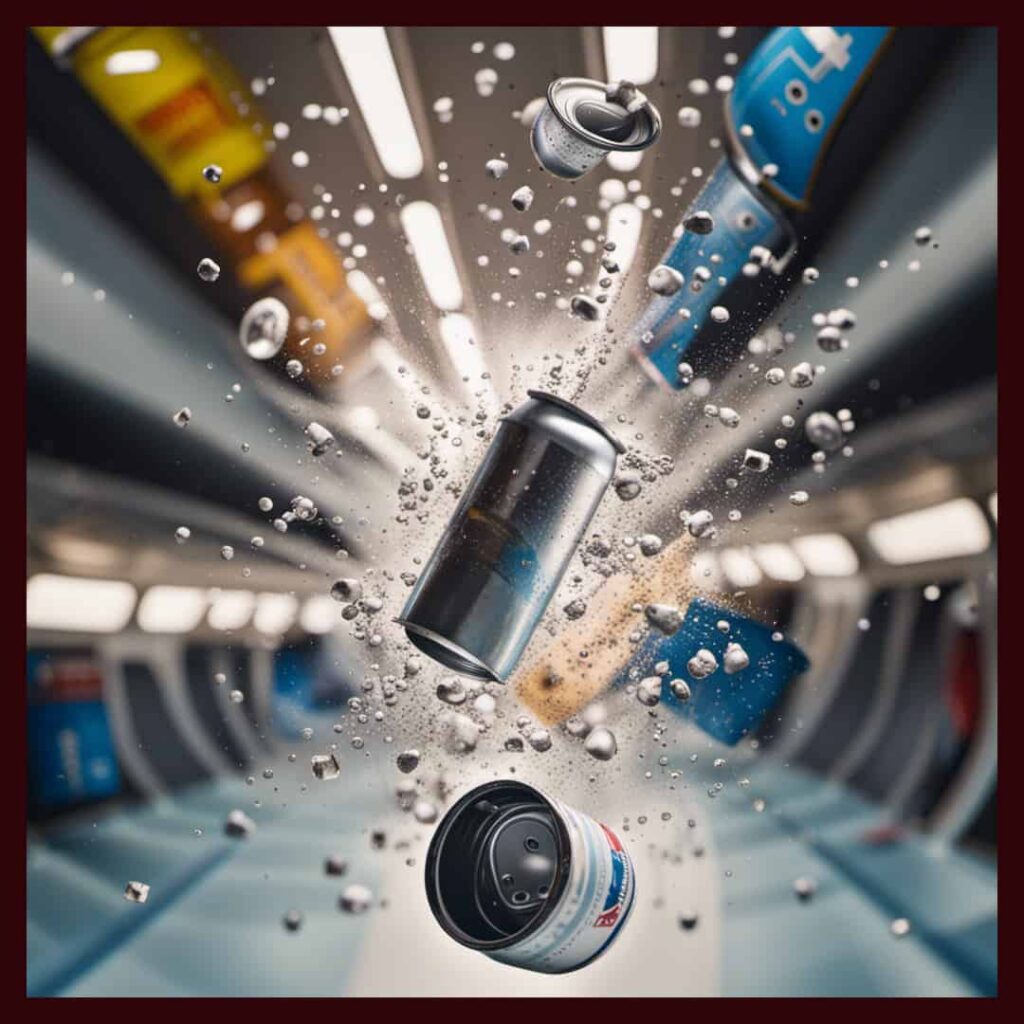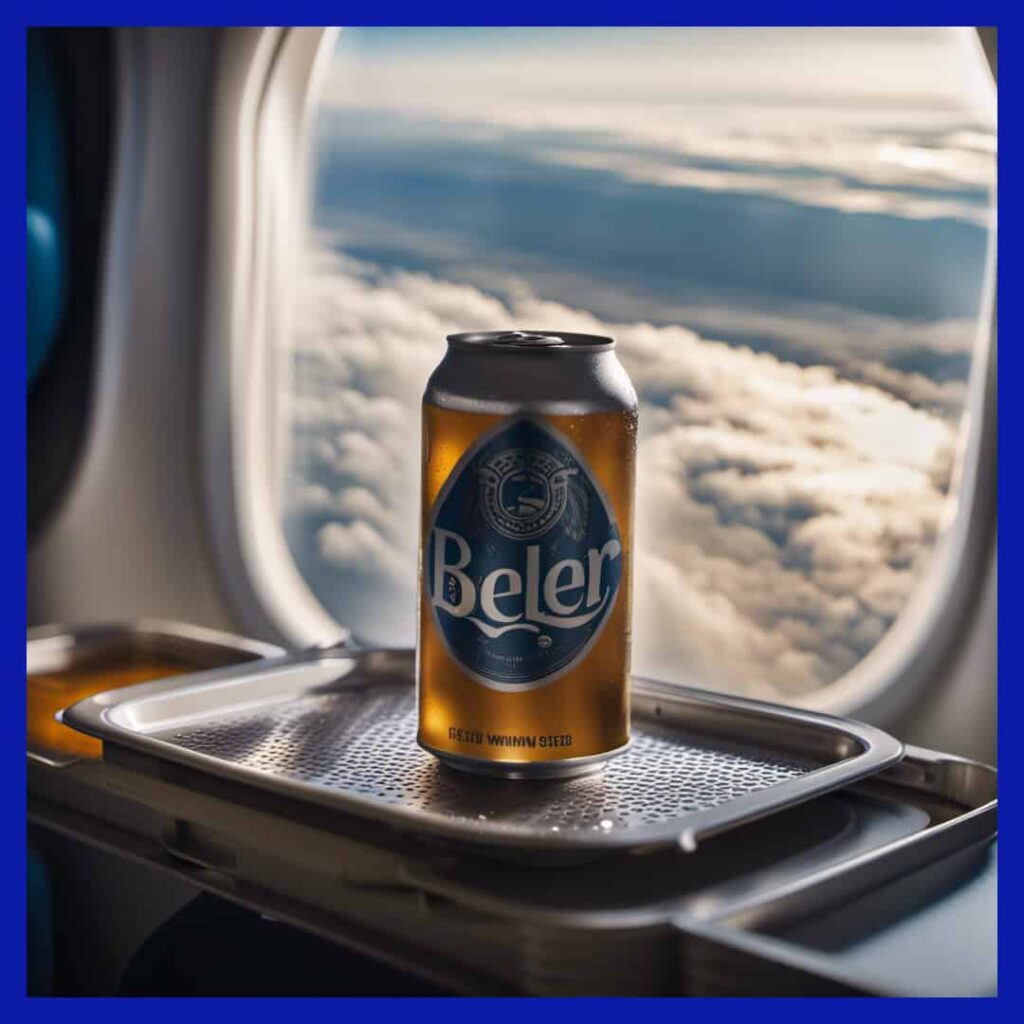Travelers often wonder if it’s safe to bring canned goods on an airplane, particularly due to concerns about whether the cans might explode due to changes in pressure during the flight.
It’s important to understand the factors affecting canned goods during air travel and the rules set by the TSA to ensure a smooth and hassle-free journey with your favorite canned products in tow.
Airplanes are designed with pressurized cabins and luggage holds, which help counteract the potential risks associated with canned goods exploding and other pressurized items.
Canned goods can be safely transported on a plane due to pressurized cabins and luggage holds
Understanding the TSA rules and regulations regarding canned food items in both carry-on and checked luggage can help you pack accordingly and avoid any issues during the airport security screening process.
Key Takeaways
- Familiarize yourself with TSA rules for including canned items in carry-on and checked luggage
- Proper packing and preparation can help ensure a smooth airport security experience with canned goods.

Canned Goods and Air Travel
Checked Luggage vs. Carry-On Bags
Canned goods can be brought on a plane, but there are different rules for checked luggage and carry-on bags. The Transportation Security Administration (TSA) has specific regulations regarding liquids, which can impact canned food transportation.
Checked Bags: Canned goods are allowed in checked baggage without size restrictions. Cans will not explode at the plane’s cruising altitude, as the pressure inside the can is much greater than the atmospheric pressure. It is essential to ensure that canned goods are stored in a cool, dry place during the flight to avoid excessive temperature-related issues.
Carry-On Bags: Canned food is permitted in carry-on bags, but must adhere to TSA’s liquid rule. Cans larger than 3.4 oz (100 ml) are typically not allowed in hand luggage. Small cans, under the 3.4 oz limit, may be accepted but might require additional screening.
Travelers should be aware of the limitations on liquids when packing canned goods in their luggage. The rules aim to ensure the safety and security of all passengers during air travel.
Pressure and Safety Concerns
Effects of Cabin Pressure on Canned Goods
Airplanes are designed to maintain a safe air pressure within the cabin and cargo hold.
This pressurized environment ensures the comfort and safety of passengers and minimizes the risk of items expanding or contracting at high altitudes. Canned goods, under normal circumstances, withstand changes in air pressure without issue.
Potential for Canned Goods to Explode
Although unlikely, there is a small chance that canned goods can explode on a plane, particularly those containing carbonated beverages like soda or beer.
This can result from an extreme fluctuation in pressure or a faulty can with a weak seal. However, it is important to note that the risk of a can rupturing or bursting within the cargo hold is minimal, thanks to the pressurized environment maintained throughout the flight.
Despite the low risk, it is a good idea to pack canned goods securely and follow the TSA regulations on liquid carrying capacity for carry-on items. This will further ensure the safety of your luggage and the cargo hold during your flight.

TSA Rules and Regulations
Liquids and Gels Restrictions
The Transportation Security Administration (TSA) enforces strict rules regarding liquids and gels in carry-on luggage. The 3-1-1 rule applies to all passengers, limiting liquids, gels, and aerosols to containers no larger than 3.4 oz (100 ml). Each passenger is allowed one quart-sized clear plastic zip-top bag to hold these items.
When it comes to food items, certain restrictions apply. For instance, liquids like soups and juice must adhere to the 3-1-1 rule as well. However, whole fruit and whole grain crackers are permitted in your carry-on luggage without restrictions.
Yogurt and similar semi-solid foods also fall under the TSA’s liquids and gels category, which means they must comply with the 3-1-1 rule. If you’re unsure if a food item is considered a liquid or gel, it’s best to pack it in your checked luggage to avoid delays at airport security.
Regarding canned foods, the TSA does allow them in both carry-on and checked bags.
Nevertheless, be aware that if a canned good appears to have a high liquid content, it might still be subject to the 3-1-1 rule. It’s always a good idea to check with your airline for specific guidelines on bringing food and other items in your luggage.
Lastly, frozen food on a plane is generally allowed but should remain frozen during the entire trip. If your frozen item has melted or partially melted into a liquid, it must meet the 3-1-1 liquids rule, placing it in your toiletries bag.

Food and Beverage Items
Handling Canned Drinks
Canned drinks, such as soda, are unlikely to explode on a plane. However, to avoid damage or leaks, wrap cans in bubble wrap or another protective material.
Food Precautions
When bringing canned food on a plane, follow specific restrictions like the TSA’s 3.4 oz/100 ml liquid rule. Items like a can of tuna may not be permitted due to their size. Keep canned goods in a cool, dry place during your flight to prevent bursting due to high temperatures.
Alternatives
Instead of canned goods, consider bringing solid food items such as cheese, fruit, and pretzels as snacks on a plane.
Pack these items in plastic bags and separate them from clothing and other belongings. Opt for food items that meet TSA guidelines, and remember to place quart-sized liquids bags in your carry-on for easy inspection by TSA agents.
Practical Tips for Air Travel with Canned Goods
Packing Techniques
When packing canned goods, using a strong and secure container is important. A cooler can help protect the items during takeoff and landing.
- Wrap cans individually in bubble wrap or clothes for cushioning
- Place them in the middle of your luggage, surrounded by other items
Managing Security and Flight Restrictions
Canned goods may be subject to additional screening by airport security. Be prepared for potential delays and cooperate with TSA agents.
- Check TSA guidelines for current restrictions on liquids and container sizes
- Inform a flight attendant or security personnel if you’re carrying canned goods
Take precautions with carbonated drinks like soda, as they can explode when air pressure changes in airplanes. Store them in well-padded bags to minimize risks.

Frequently Asked Questions
Can canned goods burst in checked luggage?
Canned goods are generally safe to pack in checked luggage, as the aircraft cargo hold is pressurized, reducing the risk of explosions. However, it’s essential to pack them securely to prevent damage during handling.
Are unopened cans allowed through TSA?
Unopened cans are allowed through TSA, but they must comply with the liquid rule. Canned food more than 3.4 oz (100 ml) is typically not permitted in carry-on luggage. Small cans (under 3.4 oz or 100 ml) may be allowed but may require additional screening.
Is it safe to bring canned food on a flight?
Yes, it is safe to bring canned food on a flight, as long as you follow TSA and airline regulations. Make sure to pack them securely in your luggage to avoid damage or contamination.
What kind of canned foods can you bring on a plane?
You can bring most types of canned foods on a plane, provided they comply with TSA liquid rules for carry-on luggage or are packed securely within checked luggage. Be aware that certain items, such as canned goods with high liquid content, may require additional screening.
Are there specific rules about carrying canned goods on an airline?
The primary rule about carrying canned goods on an airline is that they must comply with the TSA liquid rule for carry-on luggage. Additionally, ensure your canned goods are packed securely to prevent damage during transport.
Can canned items cause issues in flight cabin pressure?
Canned items generally don’t cause issues with flight cabin pressure, as the aircraft cargo hold is pressurized. Properly packaged and secured canned goods should not pose a risk to cabin pressure or safety during a flight.



